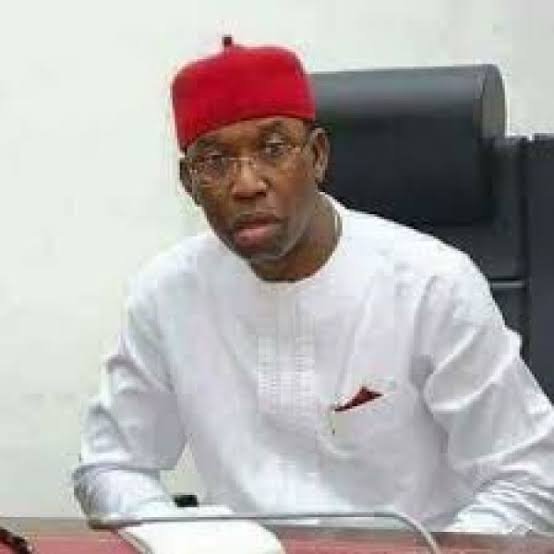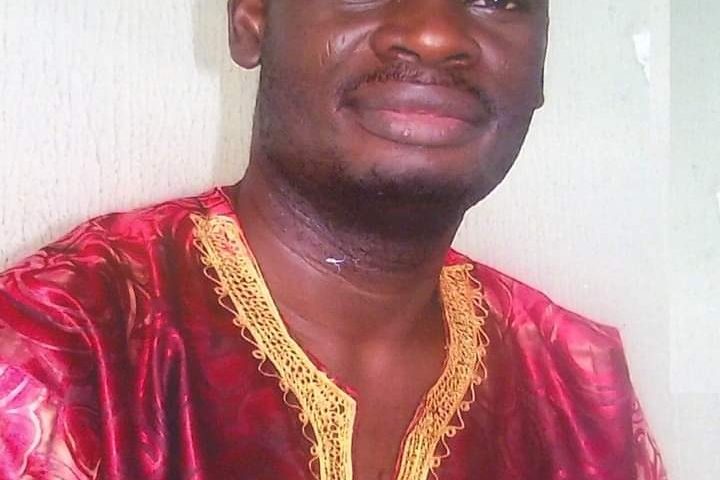Delta Governor, Sen. (Dr) Ifeanyi Okowa, said the state faced a major challenge in dealing with the informal sector in the prevailing lockdown aimed at preventing the spread of COVID-19.
He said this recently at “The Platform”, the Annual Worker’s Day programme of the Covenant Christian Centre dedicated to Nigeria’s Battle Against COVID-19 on Channels TV monitored in Asaba via Skype.
The governor disclosed that it was a tough challenge making those who relied on daily income to comply with the sit-at-home order of the state government.
He said that the state provided palliatives to cushion the effect of the lockdown on those in the informal sector, especially the vulnerable.
Okowa added that aside the informal sector, another challenge in the state was the issue of stigmatisation, but assured that the state was tackling it head-on.
“Our challenge in managing the COVID-19 in Delta is two-pronged; one is the problem of dealing with the issues of the economy of the people, particularly the informal sector, because in the process of trying to stop the chain of transmission, we have had to undertake a lockdown.
“And, in dealing with that, it is actually very challenging for the fact that most of our people are in the informal sector and they have to live on a daily basis.
“They make their monies on a daily basis and once you cut off their access, that was obviously a very major challenge.
“But, we are doing our best by way of being able to provide palliative support for the vulnerable families.
“The second challenge that we have is the issue of stigmatisation because our people are beginning to believe that COVID-19 is something that must be stigmatised.
“We have been trying to carry out an advocacy to the people to realise that this is a disease that can actually affect anybody, the high and the low, there is nobody that is exempted from it and if you are not having it today its just that you are lucky you haven’t been to a place where it has infected.
“We also do know that from the advocacies we have made, people are beginning to understand that there is need to come and be tested because the more you stigmatise them the more the patients will find it difficult to heal.
“So largely, we have the challenge of the economy within the society.
“We have already started easing of the lockdown in Delta and even when we are going to continue providing palliatives it is going to be much easier to manage a the moment,” he said.
The governor stated that COVID-19 had posed a huge challenge on global economy and as such, the state had concluded plans to reduce the 2020 budget to meet current economic realities.
He said that while the state would complete all ongoing infrastructural projects that had reached advanced stages of completion, others would have to wait till 2021 fiscal year.
“COVID-19 has posed a huge challenge to the economy because the Nigeria economy is such that we are largely dependent on oil revenue and Delta is one of the states that depends a lot on the oil funds.
“This is largely because our workers are better paid than workers in other states of the federation.
“With the shortfall in oil revenue, its obviously going to impact on us but we are very mindful of this and we are beginning to reduce our budget in such a manner that while we continue to engage in some of the very critical infrastructural works that we are already involved in, like construction of roads, rehabilitation and construction of schools, we will readjust the budget in such a manner that we are able to impact on the populace.
“The effect of COVID-19 is that we are going to make the adjustments to improve the funding for social investments and agriculture to ensure that we are able to assist our farmers to be able to grow more of their products through all forms of support in terms of better planting materials, fertilizers among others.
“We are doing everything humanly possible to engage more of our youths with various forms of youth training programmes such as the Youth Agricultural Training Programme, Skills Training Programme that has done quite a lot and the Girl-Child Training Programme.
“All these are geared to enhance the money available for them in the budget to be able to train more of our youths and then take them out of the street because the more we take them out of the street, the more concerning managing security and protection of our oil facilities.
“We are also targeting support for our Small and Micro Enterprises (SMEs) around the state and funding is going to be enhanced in this direction but obviously for the infrastructure.
” While we must continue with critical infrastructure that have reached a reasonable level of completion, some of the initial programmes that we had in the budget are definitely going to wait till 2021.
“But in the midst of all these, we have put in place a revised budget and by next week we will go back to the House of Assembly to ask for a reordering of the budget in such a manner that will be more productive for our people.
“The health of the people is also very important to us and as such while we continue to ensure adequate facilities for the management of our COVID-19 cases remain very functional.
“We have to ensure that every vulnerable person in Delta is enrolled in our health insurance programme.
“For us to ensure that we continue to render these services to our vulnerable persons, particularly children under-five, our pregnant women and our elderly and widows, we have to continue to do this to make sure that we do not allow the impact of the COVID-19 come very strongly against the very little finances available at the family circle.
“We must do everything possible to empower the family to succeed going forward in the next few months of the year,” he said.
Okowa disclosed that the state had so far recorded 17 cases while necessary medical equipment had been provided, adding that the staff had also been trained to battle the pandemic in Delta.
“As at today in Delta, we have recorded 17 cases; we have discharged two and unfortunately we had two deaths, while the 13 cases are currently being managed in our various facilities.
“Right from beginning we knew we were likely going to have the COVID-19 with us; so, we set up to have a task force to manage all issues concerning the COVID-19 which was actually inaugurated on March 16, and thereafter we set out to put our medical facilities in place.
“We have four isolation and management centres, two in Asaba at the Federal Medical Centre and the Asaba Specialist Hospital, the Warri Central Hospital and the Delta State University Teaching Hospital, Oghara.
“We have also set up a mini-testing laboratory at the Asaba Specialist Hospital.
“The centres are all well equipped with the right facilities and the right personnel have been trained and over 400 health staff team at the moment made up of staff nurses, laboratory scientists, pharmacists as well as ambulance drivers that will be working with the epidemiology team.
“Our emergency operations centre have been activated even before March 16 while the isolation centres we have at the moment are doing very well in the management of the cases.
“We have provided enough vehicles for the contact tracing because it is important you trace the contacts of every case that you have and thus far, we have traced over 182 contacts of all our patients.
“We have ensured that the team is trained in all aspects just as we have those who are in charge of the Infections Prevention Control (IPC), those in charge of case management as well as those in charge of the laundry and incinerators.” he added.





